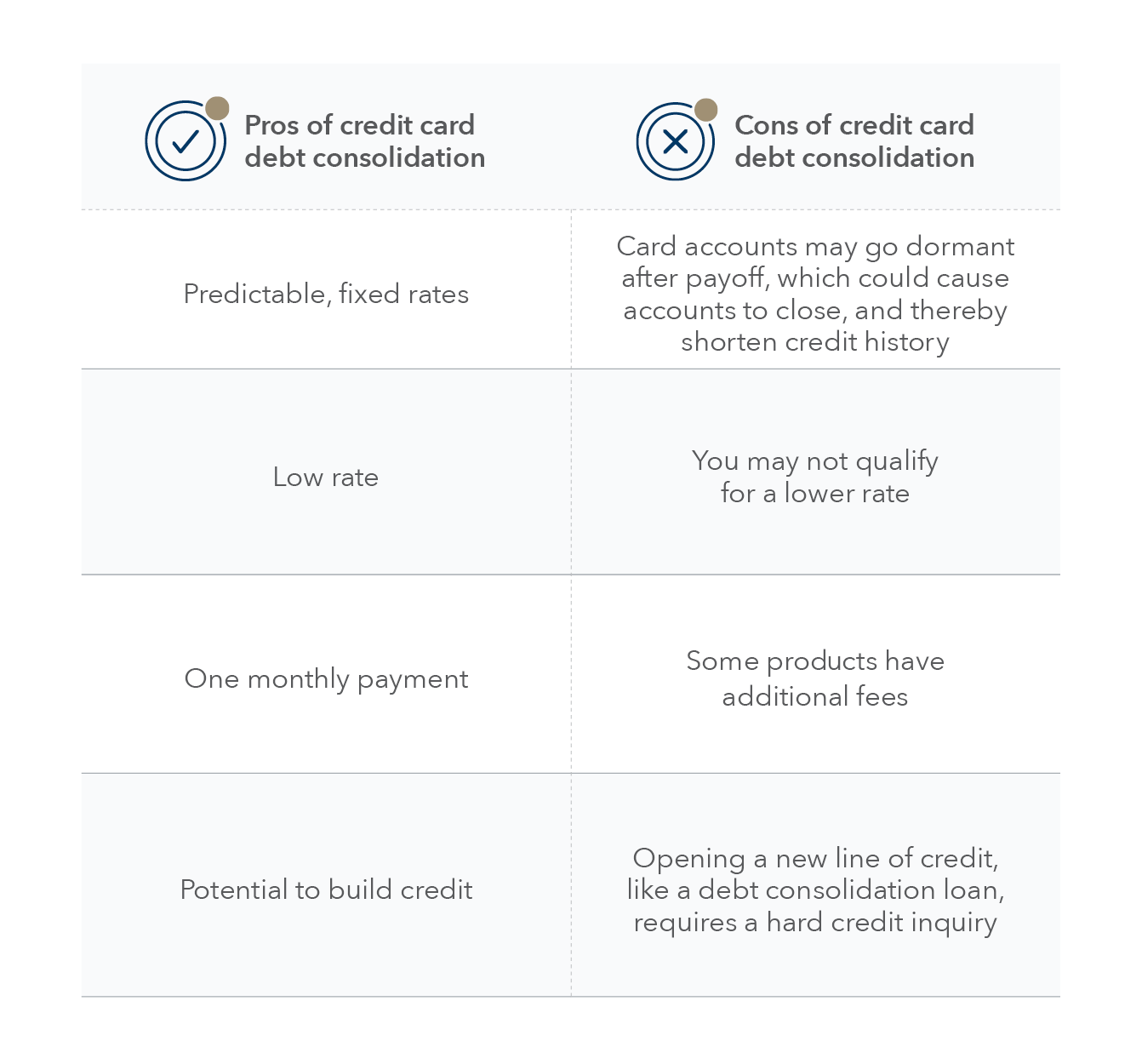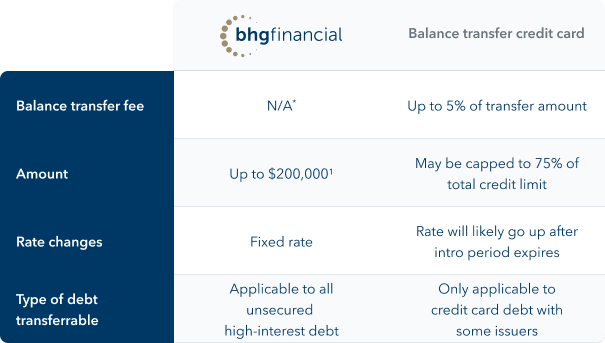Personal Loans
Customized financing to consolidate high-interest debt and unlock financial flexibility.
Business loans
Tailored commercial financing that supports all your business needs to help you grow quickly.
Tailored for entrepreneurs that want to establish additional active and passive income streams.
Customized financing to consolidate high-interest debt or fund major purchases or expenses.
About BHG
Programs
Sign in
Why More High Earners Are Turning to Debt Consolidation in 2025

Table of Contents
- Debt Among High-Income Households: A 2025 Snapshot
- Why Six-Figure Earners Are Rethinking Their Debt Strategy
- The Appeal of Debt Consolidation for High Earners
- Why 2025 Is the Tipping Point for High-Income Borrowers
- Why BHG Financial Is a Top Choice for High-Income Debt Consolidation
- When Consolidation Makes the Most Sense in 2025
- What to Know Before Consolidating as a High-Income Borrower
- Final Thoughts: Debt Consolidation Isn’t Just for People in Crisis—It’s for People in Control
Six-figure earners are increasingly turning to debt consolidation—not out of desperation, but as a smart strategy to manage cash flow, preserve liquidity, and protect long-term financial goals.
Once seen primarily as a lifeline for those struggling with poor credit or mounting bills, debt consolidation is now being embraced by high-income professionals who want structure and control. With interest rates still elevated, inflation lingering, and the cost of living rising, even top-earning borrowers are seeking solutions for managing their financial commitments without compromising their future.
Let’s explore why this shift is happening and how companies like BHG Financial are uniquely positioned to support these borrowers.
Debt Among High-Income Households: A 2025 Snapshot
Income doesn’t eliminate debt—especially in today’s economy
A six-figure salary doesn’t guarantee financial flexibility or debt-free lifestyles. Even those earning $100,000 or more annually are feeling the squeeze from rising costs, economic shifts, and the pressures of everyday life. Add in higher tax liabilities and the increasing cost of maintaining a professional living, and it’s clear why even high earners can feel cash strapped.
This disconnect between gross income and actual financial flexibility is known as the wealth paradox. And it’s real. A recent BHG Financial survey found that 68% of borrowers earning six figures had $10,000 or less in their checking and savings accounts. This suggests that having a high income doesn't always translate to having a lot of readily available cash.
Key stats that tell the story
Recent data paints a clear picture: debt is touching every income bracket—including those earning six-figures or more.
- Growing credit card debt: Total U.S. credit card debt is approaching $1.2 trillion, according to Federal Reserve Bank data from Q1 2025, with high-income households contributing significantly.
- Debt impacts retirement savings: Research from the Transamerica Center for Retirement Studies states that 53% of workers of all ages say that debt is interfering with their ability to save for retirement.
- Living paycheck to paycheck: A report by PYMNTS analyzing economic data reveals that about 36% of Americans earning $200,000 or more per year are living paycheck to paycheck.
- Income deficits are felt by all: A 2016 Federal Reserve survey comparing income and spending found that 8% of higher-income households reported running an income deficit, while 17% only “broke even."
- Skyrocketing costs of living: 2025 data from the Ludwig Institute for Shared Economic Prosperity’s True Living Cost report indicates that the cost of affording basic economic security (including housing, food, healthcare, education, transportation, technology, and more) has nearly doubled, rising 99.5% between 2001 and 2023—this is 38% faster than the Consumer Price Index.
Why Six-Figure Earners Are Rethinking Their Debt Strategy
High income ≠ high liquidity
Many high earners operate on tight margins due to significant monthly obligations and inconsistent income streams, making it challenging to manage multiple debts.
Business owners, physicians, consultants, and other professionals often experience irregular cash inflows, substantial operational expenses, or delayed receivables. Combine this with large mortgages, student loans, or high-interest credit cards, and it’s easy to see why liquidity remains a challenge.
Credit card APRs remain at record highs
Credit card interest rates in 2025 are hovering above 20%, making debt more expensive than ever. Even prime borrowers can’t “out-earn” this kind of interest.
High APRs can quickly erode cash flow, especially if balances are carried over from month to month. For high-income individuals trying to maximize savings and investments, paying thousands in credit card interest makes little sense.
Debt consolidation offers structure and predictability
Debt consolidation provides a practical solution for eliminating high-interest debt, including credit cards and other loans. By combining multiple debts into a single, new loan, borrowers can benefit from a fixed interest rate, a single monthly payment, and often a longer repayment term. This structure and predictability make it much easier to manage finances.
See your offer † real fast
Just a few easy steps to get prequalified!
† This is not a guaranteed offer of credit and is subject to credit approval.
The Appeal of Debt Consolidation for High Earners
Lower interest vs. high APRs
Personal loan rates for prime credit borrowers often fall between 10% and 15%, far lower than the 20%+ interest on many credit cards. While these rates for personal loans are higher than they were a few years ago, they are still competitive, especially when compared to credit card APRs. The difference in rates can result in thousands of dollars saved over the life of the loan.
Free up monthly cash flow without draining savings
Consolidation often allows professionals to reduce their monthly payments without tapping into retirement or emergency funds. Maintaining a strong liquidity cushion is essential for managing unexpected business or life events. Consolidation also helps stabilize finances by creating room in the monthly budget.
Improve credit utilization and score
When you pay off revolving balances, like credit card debt, and replace them with an installment loan, it can positively impact your credit utilization ratio by lowering it. This ratio is a major factor in credit scoring, so improving it can lead to a higher score and reduce financial stress.
Building a payment history also helps increase your credit score, making future borrowing easier.
Why 2025 Is the Tipping Point for High-Income Borrowers
The economic pressure is real
Inflation, lingering rate hikes, and cost-of-living demands are pushing even top earners to look for smarter tools.
The Federal Reserve’s aggressive rate increases since 2022 have driven borrowing costs higher across the board. As a result, personal loans with fixed rates have jumped more than 2% since 2021, while credit card APRs have climbed nearly six percentage points.
Borrowing costs are elevated—but strategic consolidation still works
A single, fixed-rate loan may cost less over time than juggling multiple debts with compounding interest.
Even in an environment marked by elevated rates, personal loans for debt consolidation can still offer a lower cost option than high-interest credit cards. Shifting from many payments to one streamlined payment also greatly simplifies your financial life.
Rather than a sign of financial struggle, consolidation is now viewed as a proactive liquidity strategy and a way for many to take greater control of their financial future.
Why BHG Financial Is a Top Choice for High-Income Debt Consolidation
Built for professionals—not just average borrowers
BHG Financial understands the unique needs of high-income professionals with complex finances. Our loan products are specifically designed for individuals who may carry significant debt but have the income and prime credit to manage it responsibly.
When evaluating applications, we look at more than just your credit score and consider your overall financial picture. Our concierge-style approach to lending allows borrowers to choose a loan solution tailored to their goals.
High loan amounts + longer terms = unmatched flexibility
We offer loan amounts up to $250,000,1 with flexible repayment terms of up to 10 years.1,2 Longer repayment terms allow for lower monthly payments, which can be crucial for managing cash flow, especially for those with substantial debt but strong income.
FYI: In 2025, Credible named BHG Financial the best large debt consolidation loan because we offer one of the largest loan amounts in the industry—up to $250,000.1 This allows prime borrowers to access their full requested amount or more to consolidate debt and handle major expenses—fulfilling multiple goals at once.
No upfront credit impact to check your rate
With BHG, you can explore loan offers using a soft credit inquiry, meaning there’s no impact on your credit score.3 This makes it easy for high-income borrowers like you to compare options confidently, without committing or risking your credit profile.
When Consolidation Makes the Most Sense in 2025
You’re managing multiple high-interest debts
If you have multiple debts, such as high-interest credit cards or personal loans, consolidating them into a single loan can significantly simplify your payments and potentially reduce your overall interest expense.
You want to free up monthly cash flow before year-end
Consolidating debt can lower your monthly obligations, providing more available cash flow without sacrificing liquidity. This can be especially helpful before the fourth quarter or tax season, when financial demands can increase, or your business must file quarterly and annual fiscal reports and make informed decisions for the year ahead.
You’ve maintained strong credit and want to put it to work
If you have a prime credit score, you're in an excellent position to secure favorable rates and terms on a debt consolidation loan. Using your strong credit can unlock significant financial advantages.
What to Know Before Consolidating as a High-Income Borrower
- Focus on the total cost, not just the payment. Balance monthly savings with long-term interest paid. A longer repayment term may lead to lower monthly payments, but it could also mean paying more interest overall.
- Watch for fees, penalties, or misleading rate offers. Transparency matters. Be sure to read the fine print and work with a lender that prioritizes trust. BHG personal loans have no prepayment penalties and clearly disclosed terms.
- Compare lenders who understand your financial complexity. Generalist lenders often fail to meet the needs of high-income professionals. It's essential to work with a lender like BHG that understands the nuances of your financial situation and can provide tailored solutions.
See your offer † real fast
Just a few easy steps to get prequalified!
† This is not a guaranteed offer of credit and is subject to credit approval.
Final Thoughts: Debt Consolidation Isn’t Just for People in Crisis—It’s for People in Control
The perception of debt consolidation is changing. It's no longer just about "getting out of debt,” it’s about being proactive and strategic with your money. As a result, high earners are redefining what it means to manage money. To help you meet your complex financial goals, consolidating debt brings structure and empowers you to take control of your financial future.
Ready to see what’s possible? Use our quick and easy payment estimator to get your personalized loan offer in just seconds.
Not all solutions, loan amounts, rates or terms are available in all states.
1 Terms subject to credit approval upon completion of an application. Loan sizes, interest rates, and loan terms vary based on the applicant's credit profile.
2 Personal Loan Repayment Example: A $60,000 personal loan with a 7-year term and an APR of 17.06% would require 84 monthly payments of $1,191.38.
3 There is no impact on your credit for applying. For personal loans, a complete credit history, which will appear as an inquiry on your credit report, will be performed upon acceptance and funding of the loan and may impact your credit.
Consumer loans funded by Pinnacle Bank, a Tennessee bank, or County Bank. Equal Housing Lenders.
No application fees, commitment, or impact on personal credit to estimate your payment.
For California Residents: BHG Financial loans made or arranged pursuant to California Financing Law license - Number 603G493.
Consolidating personal credit card debt FAQs
Consolidating personal credit card debt can simplify your finances by combining multiple debts into a single monthly payment with more manageable interest rates. In the long run, this can save you from spending more money than you anticipated or previously agreed to on in-terest payments in the future.
Personal debt consolidation can impact your credit score differently depending on the method chosen. For example, applying for a new loan or credit card for consolidation may result in a temporary dip in your credit score due to inquiries, changes in credit utilization, and your his-tory using credit-based financial products. However, making timely payments on the consoli-dated debt can positively affect your credit score by demonstrating responsible financial man-agement.**
Yes, personal debt consolidation can be applied to various types of debt, including personal loans, medical bills, and student loans, in addition to credit card debt. Consolidating multiple debts into a single payment can streamline your repayment process and make it easier to man-age your finances overall.
With highly specialized financing options for accomplished professionals, BHG Financial offers personal loans up to $200K1 to use as you need them. With repayment terms that last up to 10 years,1,2 you can fully bring your financial plan to action by consolidating your personal debts into a simple and affordable monthly payment to help you achieve financial peace of mind sooner rather than later.
Our payment estimator can help you see your personalized estimate quickly, and our dedicated concierge service team can serve your needs every step of the way.


Source: Bankrate, Investopedia - Accessed on 3/14/25
1 Terms subject to credit approval upon completion of an application. Loan sizes, interest rates, and loan terms vary based on the applicant's credit profile.